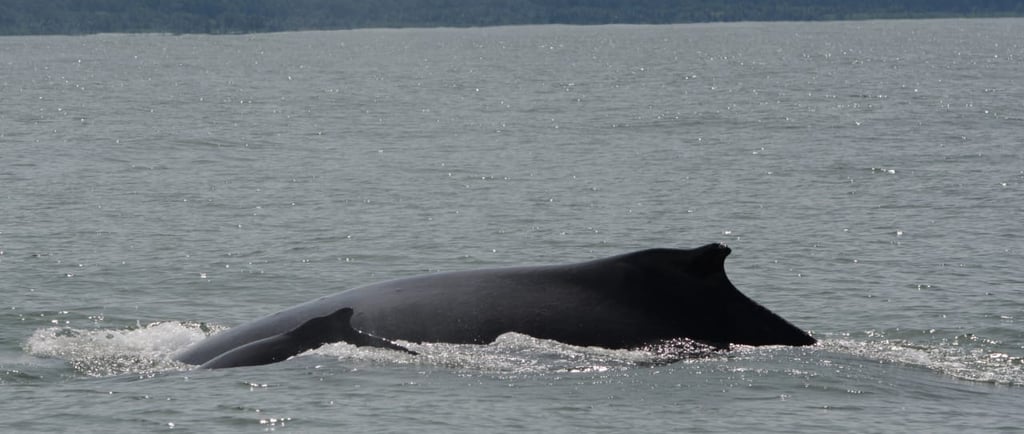Whale watching in Costa Rica
Costa Rica is home to two distinct migrations of humpback whales, making the Pacific waters of this nation a crucial ecosystem for conserving these giants of the sea.
Coral Expeditions Costa Rica
6/18/20252 min read


Costa Rica is home to two distinct migrations of humpback whales, making the Pacific waters of this nation a crucial ecosystem for conserving these giants of the sea.
Southern Humpback Whales (July to October) :
This period is recognized as the “rainy season,” during which we welcome the southern humpback whales that travel from Patagonia in South America to the warm waters of the South Pacific near the coast of Costa Rica. Their primary goal is to give birth to their calves, called ballenatos, and some engage in courtship. The warm waters in the bay provide numerous advantages for nurturing young whales and offer protection from their main predators, such as orca whales and certain sharks. The whale population in this southern region is quite substantial, resulting in frequent sightings during whale-watching tours. The initial sightings typically occur in the second and third weeks of July, with August and September being the peak months when the likelihood of sightings exceeds 90%.
Northern Humpback Whales (Late December to February) :
This season is referred to as our dry season and begins with the arrival of humpback whales from the Northern Hemisphere. They start to arrive in late December during their migration from Oregon, with the same intentions of reproduction and courtship. The population of these whales is considerably smaller, which leads to a decrease in sighting percentages compared to the other species.
Responsible Whale Watching and Community:
To emphasize the significance of cetaceans and other inhabitants of this bay area to the local economy, Bahia Ballena has proclaimed September as the month of the whales in Costa Rica. Throughout this month, there is a celebration known as the Festival of Whales, inviting both locals and visitors to learn about whales to foster greater awareness for the conservation of these species. During the festival, tours are offered at reduced prices for locals, and various activities are provided to educate people about our marine and terrestrial resources. (NOTE: The Whale’s Festival 2025 will occur on September 6, 7 & 8).
In the 70s, 80s, and part of the 90s, Bahia Ballena was primarily a fishing village. Toward the end of the 90s, local fishermen began providing boat rides for beachgoers, showcasing the island and coastline while allowing them to observe dolphins and whales. At the start of 2000, the Costa Rican government began to support locals offering these tours by providing necessary training to conduct excursions responsibly, guiding and training captains to make the tours more formal.
Today, the tourism sector in Bahia Ballena, Uvita, is highly professional, utilizing bilingual guides and captains certified by the Costa Rican Chamber of Tourism (ICT) and organized into associations. There are roughly ten well-structured whale-watching companies in Bahia Ballena that also provide additional activities.
Whales and dolphins, like all living beings, are vulnerable to human impacts on their environment. Implementing eco-friendly practices during tours is vital for their protection.
Currently, Coral Expeditions Costa Rica has established a protocol for sightings to minimize the impact on the cetaceans. This protocol requires maintaining an appropriate distance from dolphins while navigating at the same speed and direction as them. In Costa Rica, swimming near cetaceans is prohibited to avoid disturbing their habitat or behavior. It is crucial for experienced captains and guides to discern whether the whales or dolphins feel threatened by observing and assessing their behavior. The captain is responsible for deciding whether to continue or discontinue sightings, respecting these beings' space. Choosing any of our tours ensures you will be safe and well-informed!
Tours
info@coralexpeditionscr.com
+506-8401-7444
© 2025. All rights reserved Coral Expeditions Costa Rica.
Destinations
Company
Costa Rican boat tour operator for Whale and dolphin watching tours and other marine activities located in Bahía Ballena, Uvita, Osa Peninsula


